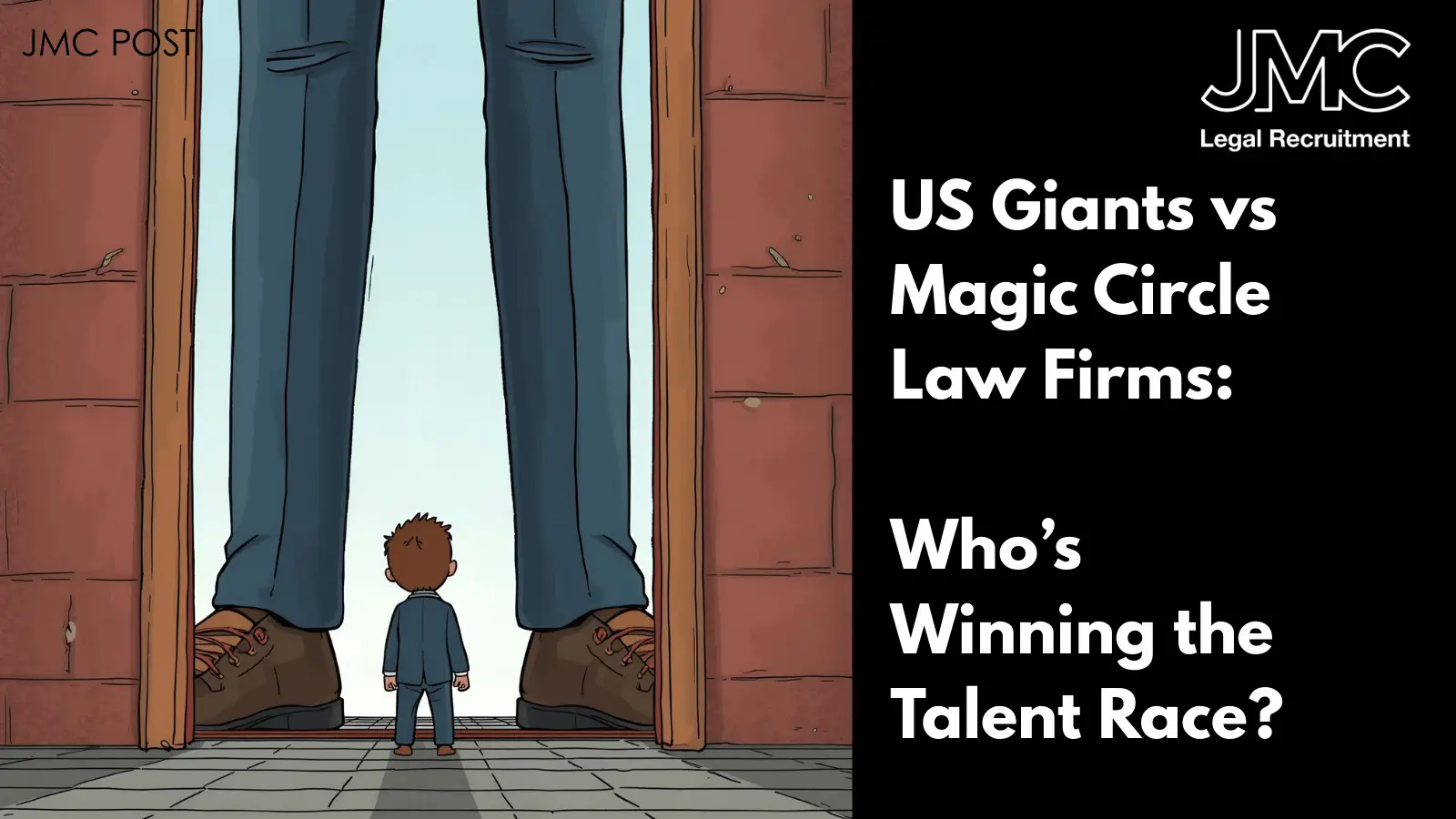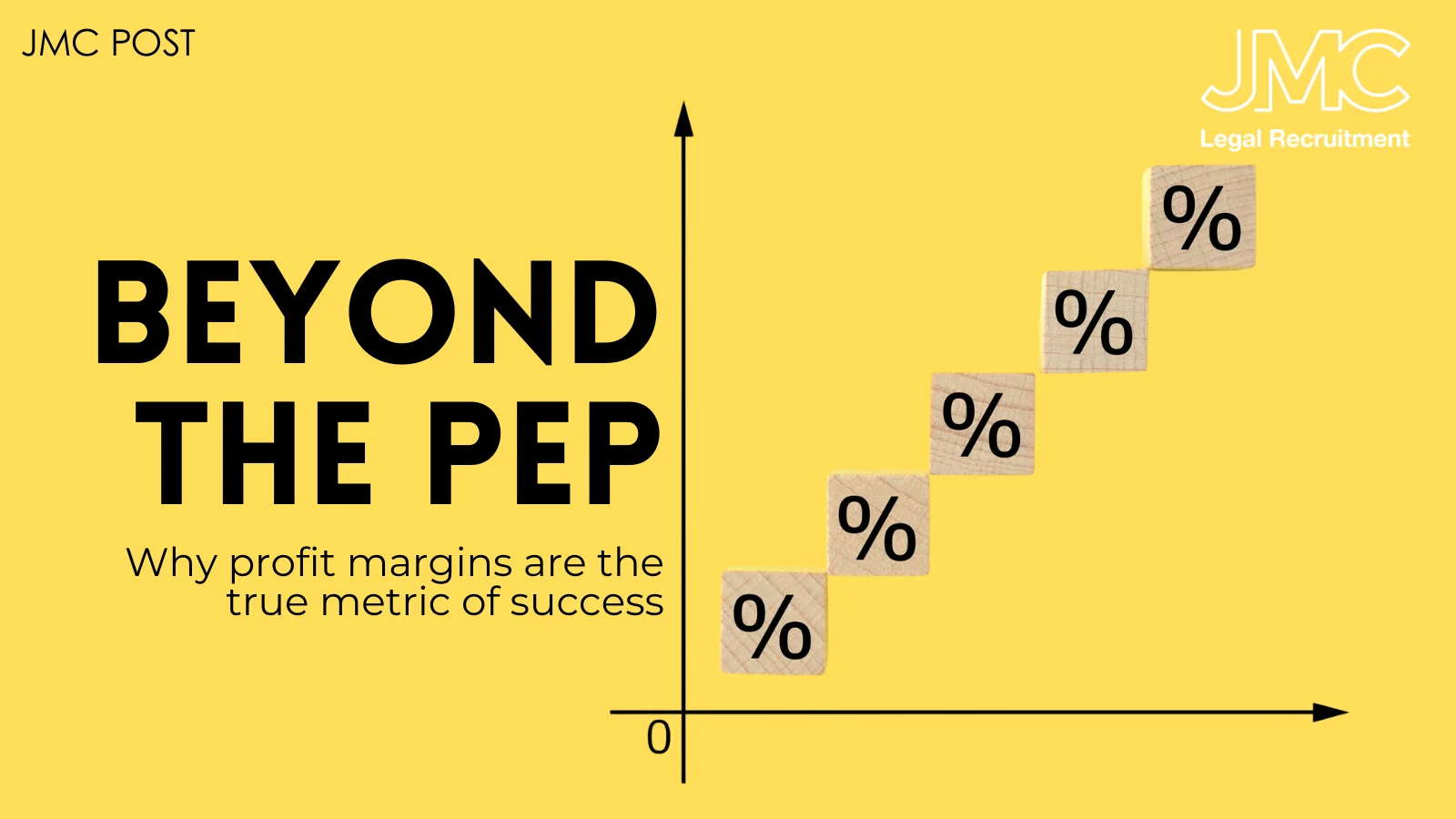
US Giants vs Magic Circle Law Firms
27 Aug, 20256 minutes
US Giants vs Magic Circle Law Firms: Who’s Winning the Talent Race?
Pay, prestige, and pressure: what’s driving the shift in legal talent?
The London legal market has become a battlefield for talent. As a London legal recruiter with 14 years of experience, I’ve watched US law firms storm into the capital with aggressive hiring, jaw‑dropping compensation, and new cultural playbooks. These moves are redefining the recruitment landscape, pitting them directly against the esteemed Magic Circle law firms—and putting our city's legal talent at the centre of a global tug‑of‑war.
The Stakes: Salary, Culture & Prestige
1. Compensation
- US firms like Gibson Dunn and Quinn Emanuel are now offering newly qualified (NQ) solicitors in London £180,000, pushing traditional thresholds to breaking point.
- In response, Magic Circle firms have raised their starting salaries to £150,000 in 2024.
- Yet US firms continue to hold the upper hand, maintaining a 35–40% pay advantage for junior lawyers.
- Simmons & Simmons’ managing partner called the pay explosion “not sustainable” and warned it’s fueling staff burnout.
2. Work Culture
High salaries come with a price tag. Reports confirm NQs in US firms frequently clock 70+ hours per week, face sponsorship cuts, and struggle with a culture of overwork. A stark reminder: one Times article bluntly contextualises a £150,000 job with “don’t expect to have a life”.
Even as deals flourish and profits soar, concerns about associate wellbeing, mental health and diversity intensify.
3. Prestige & International Reach
Magic Circle firms: Allen & Overy, Clifford Chance, Freshfields, Linklaters, Slaughter and May remain synonymous with prestige. Still, US firms leverage their global footprint, aggressive lateral hiring, and international client mandates to gain an edge.
Allen & Overy’s merger with Shearman & Sterling, forming A&O Shearman, boosted equity partners’ earnings and expanded the firm’s transatlantic presence, cementing its hybrid identity in the battle for top talent.
Linklaters marked record profits in 2024–25, with each equity partner receiving an average of £2.2 million, showing that Magic Circle firms still have financial muscle, especially in USD-dominated US offices, which expanded significantly).
What’s Driving the Talent War?
Why are US firms drawing lawyers away from the Magic Circle?
- Lockstep culture vs transactional performance: US giants offer transparent, performance-linked pay; Magic Circle firms rely on more traditional, opaque structures).
- Global development opportunities: US firms emphasise mobility, mentorship, and cross-jurisdictional training, appealing strongly to ambitious associates.
- Swift cultural adaptation: These firms have leveraged feedback loops and streamlined operations to create efficient, merit-based systems contrasting with the more hierarchical UK model.
- Strategic branding & ambition: For many, joining a US firm is a statement of intent.
Impacts on Legal Recruitment in London
As a London legal recruiter, I see this talent war reshaping hiring strategies:
- Talent pipelines are being redirected. Junior talent that's historically flowed to the Magic Circle is being diverted toward US players offering higher pay and a fast-paced trajectory.
- Silver Circle firms (like Macfarlanes, Ashurst, Herbert Smith Freehills) are repositioning themselves as premium, agile alternatives to both Magic Circle and US firms, appealing to lawyers seeking quality of work and better work-life balance.
- Demand for associates is rising—legal recruiters report record-making hiring activity in London.
Who’s Winning the Talent Race?
US Firms
Strengths: Compelling salaries, global pathways, transparent structures, modern culture, growth momentum.
Downside: Unsustainable workload, high burnout risk, potential cultural misfit for those seeking balance.
Magic Circle
Strengths: Heritage, brand prestige, less punishing lifestyle (relatively), strong partner profitability.
Weaknesses: Slower cultural changes, opaque comp systems, slower responses to market shifts.
Silver Circle
They occupy an attractive niche, offering high-calibre work, competitive pay, and improved quality of life. Growing relevance as a middle path.
Strategic Moves to Secure Talent
Here’s what firms can do to stay competitive in Talent London 2025:
- Modernise compensation frameworks: Consider transparency, performance tiers, and aligning with market expectations.
- Cultivate a flexible culture: Prioritise retention through mentorship, wellbeing programs, and manageable work models.
- Innovate with pathways: Leverage apprenticeships, SQE routes, and cross-firm rotations to broaden talent funnels.
- Embrace ESG and diversity: As US firms succeed in attracting Gen Z talent through visible ESG commitments, UK firms must up their game.
Conclusion
The legal talent war in London is active, urgent, and transformative. As legal recruitment London UK continues to evolve, firms must decouple from legacy models and play a smarter, more inclusive game.
US firms currently lead on compensation and innovation. Magic Circle firms maintain prestige and financial robustness. But neither can afford complacency. With the Silver Circle rising and the market shifting beneath them, all players must adapt or risk losing their most valuable asset: people.



